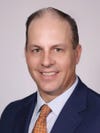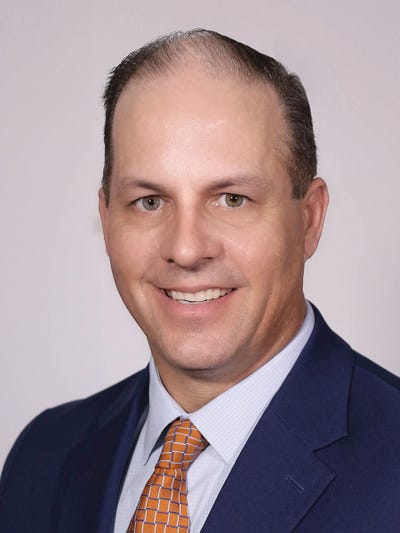The New Frontier of Early-Stage Medical Device Funding
The rise of family offices and incubators is transforming the funding landscape for early-stage medtech companies, providing new opportunities and insights for success.

Seed and pre-seed funding for medical device and diagnostics companies remains one of the highest early priorities in this sector and continues to be as challenging as ever.
The inherent high risk of these companies and the long path to commercialization that almost always runs through an FDA regulatory approval process, coupled with the lack of consistent and apparent sources of capital for these companies, continue to present these companies with early challenges to success and longevity.
It is easier to raise $15 million than it is to raise $500,000.
Having represented early-stage technology, medtech, and biotech companies for more than 25 years at two major Am Law 100 firms, I have worked closely with hundreds of founders and entrepreneurs starting Medical device and diagnostics companies to formulate financing plans and to secure the much needed early capital to further their companies. One reality has consistently rung true through all these years: it is easier to raise $15 million than it is to raise $500,000.
At these higher levels, when a company has matured beyond the seed and pre-seed stage and is suited for more significant investment, the sources of capital are easy to find. The venture capital firms that have long been the primary source of capital for medical device and diagnostics companies that have progressed beyond the seed and pre-seed stage all make themselves obvious and easy to find. They all have user-friendly websites that clearly define the fund’s investment approach and the characteristics of potential portfolio companies. Those websites always publish the bios and contact information for the deal teams, making outreach to those folks easy. Those same deal teams are constantly looking for new investment opportunities and frequent the many venture fairs, capital conferences, company showcases, and trade conferences that the more advanced medical device and diagnostics companies attend.
The question, then, is what makes a successful seed and pre-seed medical device and diagnostics company and why do some of these companies secure early financing, while many struggle? The answer, while neither easy nor a one-size-fits-all, is that some requirements remain the same through the years, while some new developments have arisen to help these companies successfully secure seed and pre-seed funding.
Remaining consistent is the reality that all investors still make their initial investment assessment based on the founder or management team. People matter, first and foremost, to investors and particularly early-stage investors. The more experienced and capable the founder or initial management team is, the higher the probability of securing early financing. This remains a certainty.
What also remains consistent is that there are not enough sources of capital for seed and pre-seed medical device and diagnostics companies, particularly here in the Mid-Atlantic and more broadly on the East Coast. There are very few true early-stage funds targeting seed and pre-seed medical device and diagnostics companies. The many angel groups that focus on this region have also failed to be significant providers of early-stage capital to medical device and diagnostics companies. Long hoped to be a real solution to the lack of early-stage funds, many angel groups are deploying their precious capital upstream by participating in a series A investment led by a venture fund, rather than deploying their much-needed capital at the seed or pre-seed stage.
I know that the foregoing statements about angel groups are going to bend the noses of many of my good friends who run these groups, but I can only call it as I see it.
The good news is that there are a few recent developments benefiting seed- and pre-seed stage medical device and diagnostics companies seeking early-stage capital. In particular, the family office world is becoming an important provider of capital to seed- and pre-seed stage medical device and diagnostics companies. A family office is formed when a wealthy family or families segregate a portion of their wealth and hire a professional management and investment team to deploy that wealth by investing in companies or other opportunities. A family office is a subset of the private equity or venture capital world but differs significantly from those funds because a family office lacks limited partners, does not usually have a defined fund life, and can generally be more flexible and creative when it comes to deploying its capital and making its investments. There has been a noticeable and welcome rise in investments made by family offices into seed and pre-seed medical device and diagnostics companies in the last five to 10 years, and I expect this trend to continue.
A second positive development is the increased activity being seen in the incubator and accelerator space, particularly for medical device and diagnostics companies. In a similar manner, major universities have also long been significant supporters of early-stage medical device and diagnostics companies, surrounding these companies with academic and research resources, lab space, and often early capital in the form of actual dollars or in-kind investment. This trend is certain to continue but is recently being bolstered by more regional or “second tier” universities getting into the game. These universities are seeing an upsurge in innovation on their campuses and are supporting these efforts by either providing resources directly or bringing in third parties to assist their companies.
The venture studio model is also an increasing trend for medical device and diagnostics companies. A venture studio is an entity formed by an academic center, research center, or clinic where innovation is taking place. The technologies being developed are housed in and managed by seasoned professionals with expertise in advancing technologies through the concept stage to the product development stage. The venture studio provides the talent, the space, and the funding to these early medical device and diagnostics companies who are then launched into their own new company, oftentimes ready for a series A investment rather than seed and pre-seed investment.
Finally, a welcomed recent development being seen in the seed and pre-seed funding arena for medical device and diagnostics companies is the willingness of individual investors to support these companies for longer and at more significant levels than in past years. With the path to more significant capital getting tougher recently, early investors in medical device and diagnostics companies are being leaned on to carry companies longer and at higher levels of investment. Companies with early investors who are willing to do this are of course more likely to succeed, and the recent trends seem to indicate that more early investors understand this challenge and are rising to the occasion.
Successful early stage medical device and diagnostics companies still need to have great founders, distinguishable products or technology that meet unmet needs or displace current therapies, a defined and credible path to commercialization, and an ability to capture significant market share. Regardless, these companies are continuing to face tremendous obstacles to funding at the seed and pre-seed stage. While this will likely always be the case, the family office world, the increased activity in incubators, accelerators, universities, and research centers, along with early investors being willing to go longer and deeper with companies, are all contributing to give these early-stage medical device and diagnostics companies new or increased avenues to secure their much-needed early funding and resources. While this means there is still more of the same old challenges facing these companies, there appears to be the beginning signs of a potential new norm developing for seed and pre-seed stage medical device and diagnostics companies that offers some optimism for these companies.
About the Author(s)
You May Also Like




